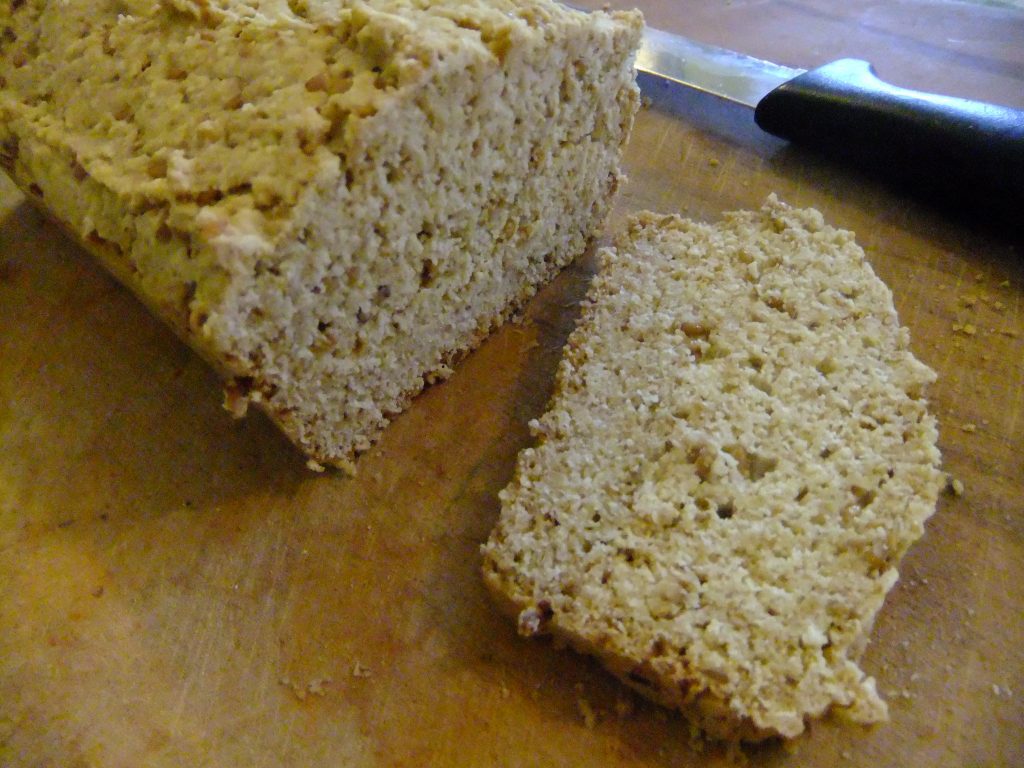This is delicious and I think it tastes very like traditional brown soda bread and thankyou to the patient who gave me the recipe. Without something extra to bind it I do find it a little crumbly. If this is too annoying (I don’t mind this) you can add a large egg to the mixture to bind it, or alternatively a vegan “flax egg” (1 tbs ground flax seeds mixed with 3 tbs water). I also line the bottom of the loaf tin with silicon/baking paper (and grease this too) just in case it should stick.
1 large tub of organic natural yogurt (400 ml or 500g) or home made kefir (or dairy free versions: unsweetened soya or almond yoghurt)
2 tubs (about 800ml) gluten-free porridge oats (use the yogurt tub that you just emptied) or if you eat gluten, normal porridge oats
2 rounded tsp of baking soda
2 tbsp of extra virgin olive oil
To bind (optional) 1 large egg, beaten or 1 tablespoon ground flax see or chia seed mixed with 3 tbs water
A handful of porridge oats or poppy seeds for sprinkling on top
1. Preheat your oven to 180C (fan) or 195C (non-fan)
2. Get a big bowl and mix all of your ingredients gently but thoroughly
3. Grease a 2lb (900g) loaf tin with olive oil and line base with greaseproof/silicon paper if using
4. Pour your mix into the loaf tin and spread to flatten the top a bit
5. Put in the oven for 45 mins (at about 15mins, sprinkle some porridge oats or the seeds on top)
6. Take it out and carefully remove from loaf tin
If you really want crispy edges to the bread, put it back in the oven for 5 minutes.
Why this is better for you
Oats are packed with soluble fibre which feeds beneficial bacteria in your gut as well as helping you feel fuller for longer. Oats are naturally lower in sugars than wheat. Wheat (even wholemeal) contains amylopectin which can be fuel cravings and binges. Oats are also far easier to digest because they do not contain gliadin gluten or irritating wheat bran, which can make digestive issues flare up. Natural yoghurt is a much better binder for bread than the refined vegetable oils in a lot of shop bought breads. Refined oils interfere with energy production and cause inflammatory in your body – e.g. in your digestive system or your skin. Other grains such as millet and buckwheat are also healthy choices for making bread. Many people who are sensitive to dairy (milk products) can take kefir. This is because the kefir organisms hydrolyse (break down) casein, the problematic protein in milk. Kefir is also low in lactose because it is digested and turned into lactic acid (hence the tangy, yoghurty taste). Shop bought yoghurt is not usually totally lactose free as the fermentation is not allowed to be completed.

